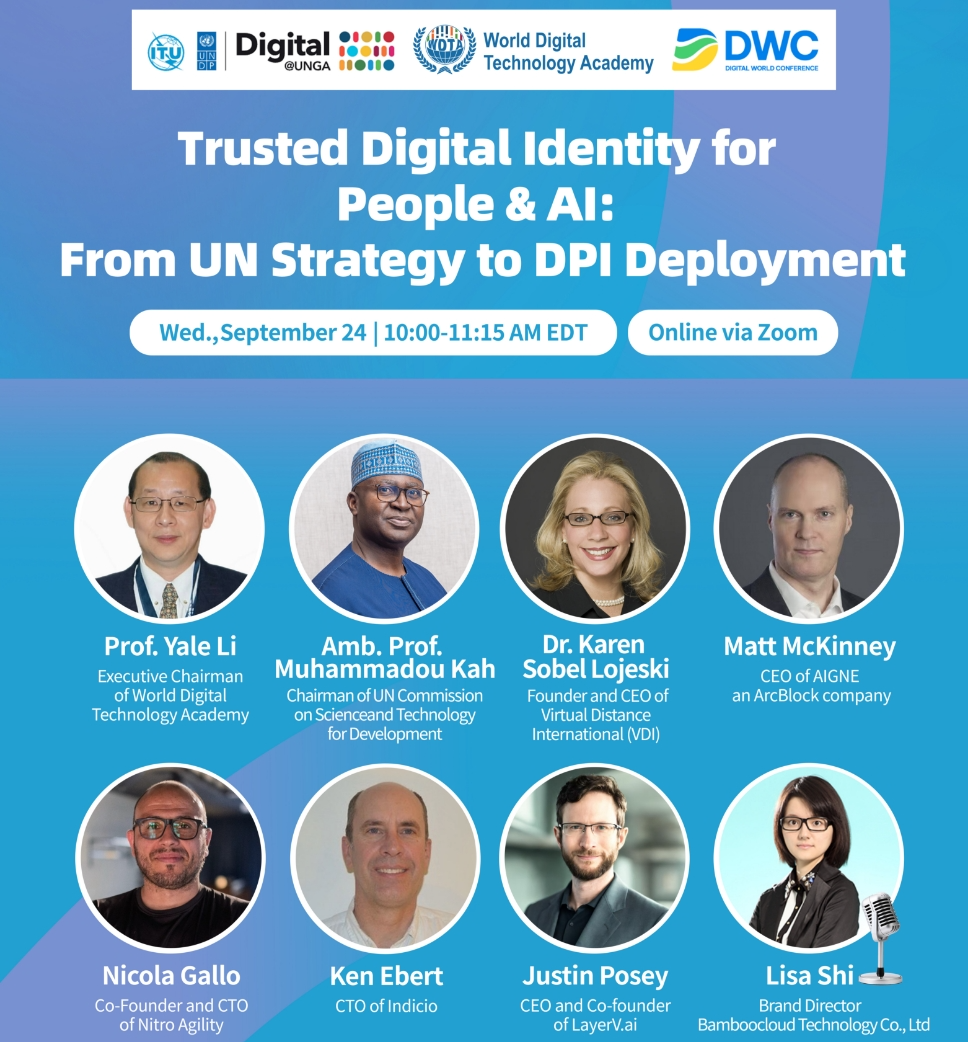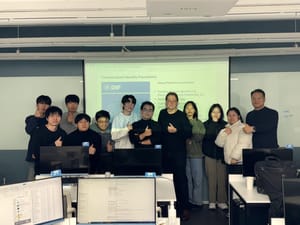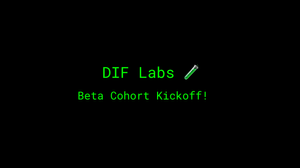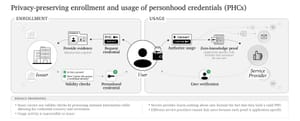Today, two Decentralized Identity Foundation (DIF) members brought their expertise to an influential global audience at Digital@UNGA, a high-level event convened by the ITU, UNDP and WDTA during the 80th UN General Assembly.
In a critical session titled “Trusted Digital Identity for People & AI,” the discussion moved beyond theory to address the real-world challenges of deploying Digital Public Infrastructure (DPI) that is secure, equitable, and future-proof. In partnership with Gambian Ambassador Muhammadou Kah, Chairman of the UN Commission on Science and Technology for Development, the session focused on turning the UN’s digital identity strategy into a deployable reality, grounded in the core principles of interoperability, privacy by design, and inclusion for all.
The core challenge addressed by the panel was the persistent gap between policy and production. While global goals like SDG 16.9 are clear, the goal of providing legal identity for all by 2030 is often stalled by protocol fragmentation and the lack of a robust architectural model for a world where both people and AI agents are first-class citizens. The session explored how to bridge this gap by encoding principles as measurable engineering requirements, ensuring that concepts like privacy and interoperability can be verified through rigorous, evidence-based testing before procurement and large-scale deployment.
Representing DIF, Matt McKinney, CEO of AIGNE, an ArcBlock company, and Co-Chair of the DID Method Spec Working Group, presented a framework for building this next generation of DPI. His talk focused on the necessity of a symmetrical architecture that serves both people and AI agents with the same high standards of security and control. He argued that for this mixed-initiative future to be safe, AI agents must use controller-bound credentials, operate with least-privilege, time-boxed permissions, and be subject to fast, verifiable revocation. He outlined a phased, low-risk path for policymakers to move from architectural requirements to a multi-vendor sandbox, then to a pilot, and finally to a scalable rollout, all based on open standards and anchored to objective conformance proofs.
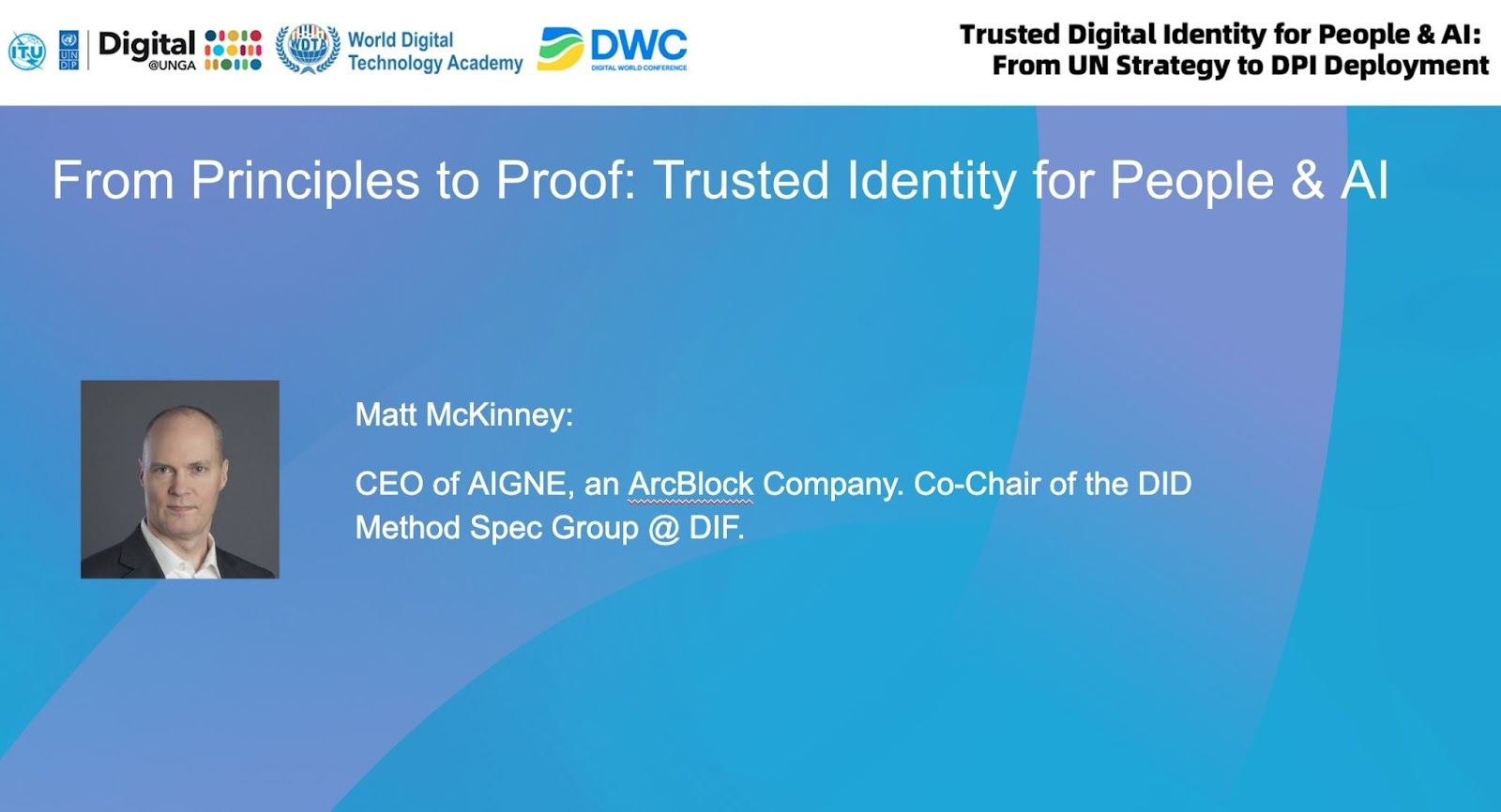
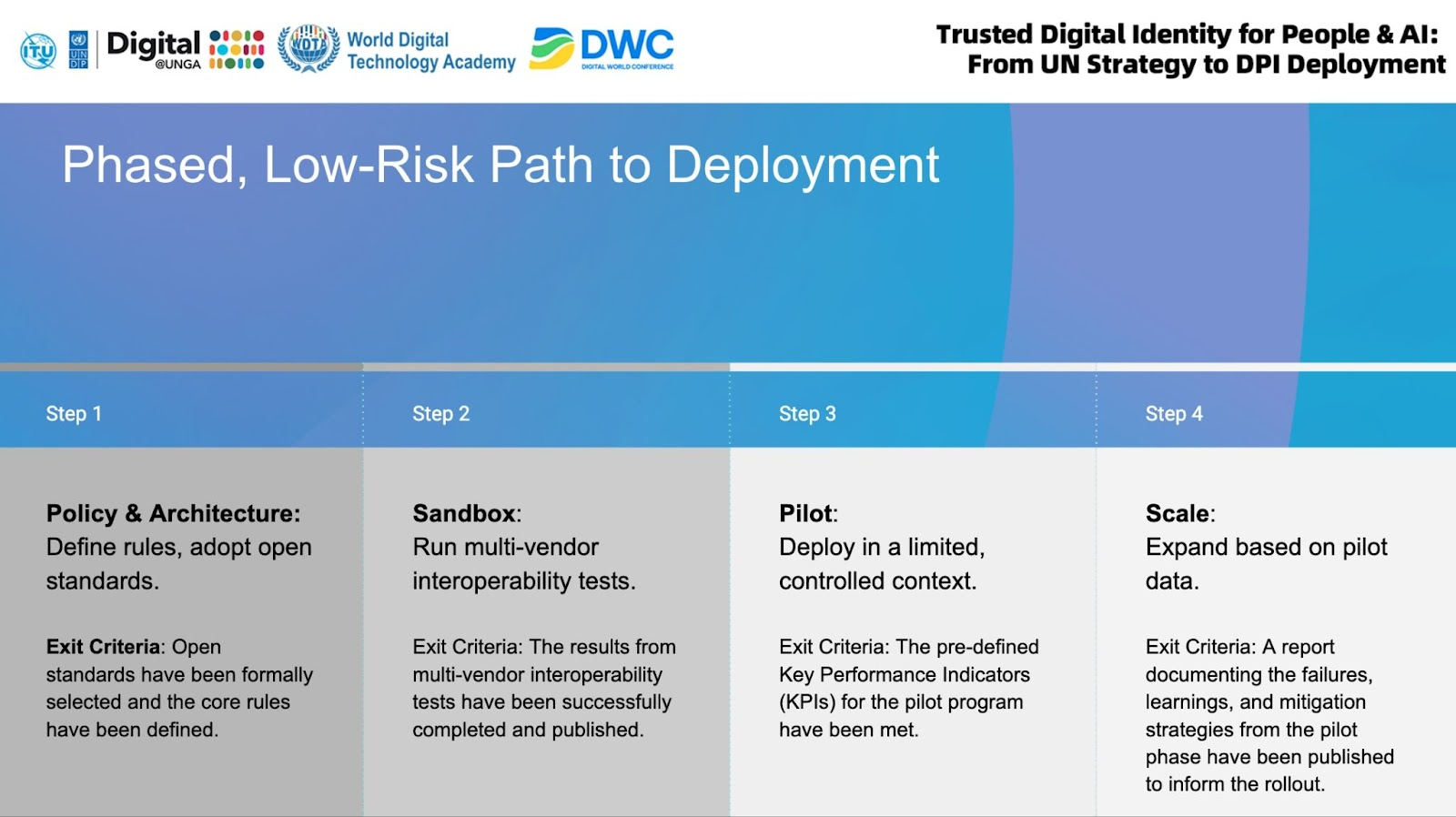
Nicola Gallo, Co-Founder of Nitro Agility and Co-Chair of DIF's new Trusted AI Agents Working Group, also presented at length. He emphasized the importance of building a trust stack for AI agents, one that clarifies the types of trust required, considers the impact of AI on social and market structures, and defines protocols that can effectively address these concerns. In his view, a sustainable path is to anchor trust in the identities of the executors themselves, enabling distributed chains of attested actions. Without this granular and auditable accountability, we risk relying too heavily on impersonation models, where the role of the actual executor may be unclear and trust becomes harder to govern or verify. Ultimately, the key lies in giving workloads their own flexible and verifiable identities, making it possible to trace and govern responsibilities across distributed systems, thus envisioning a new Internet of Trust
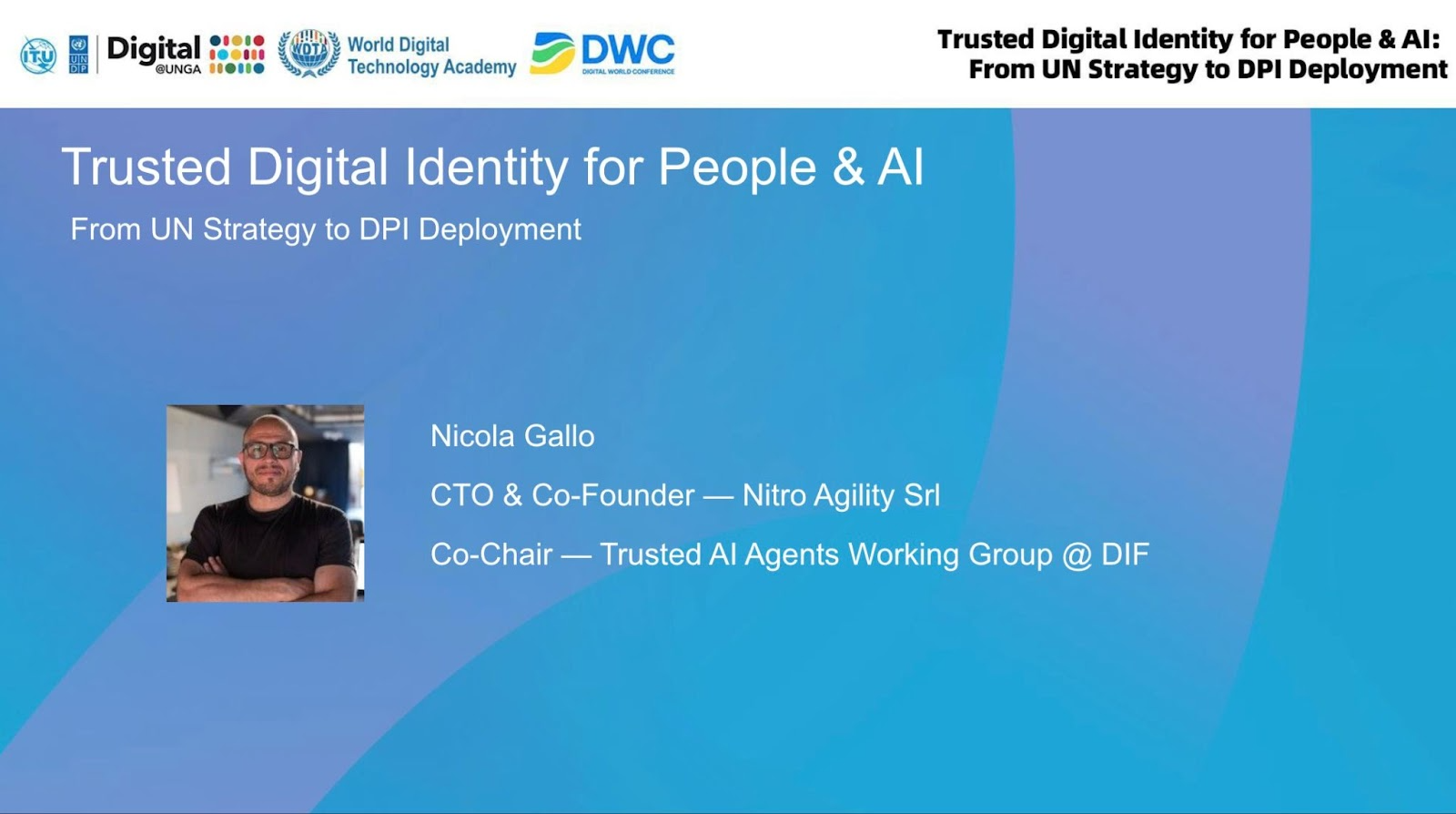
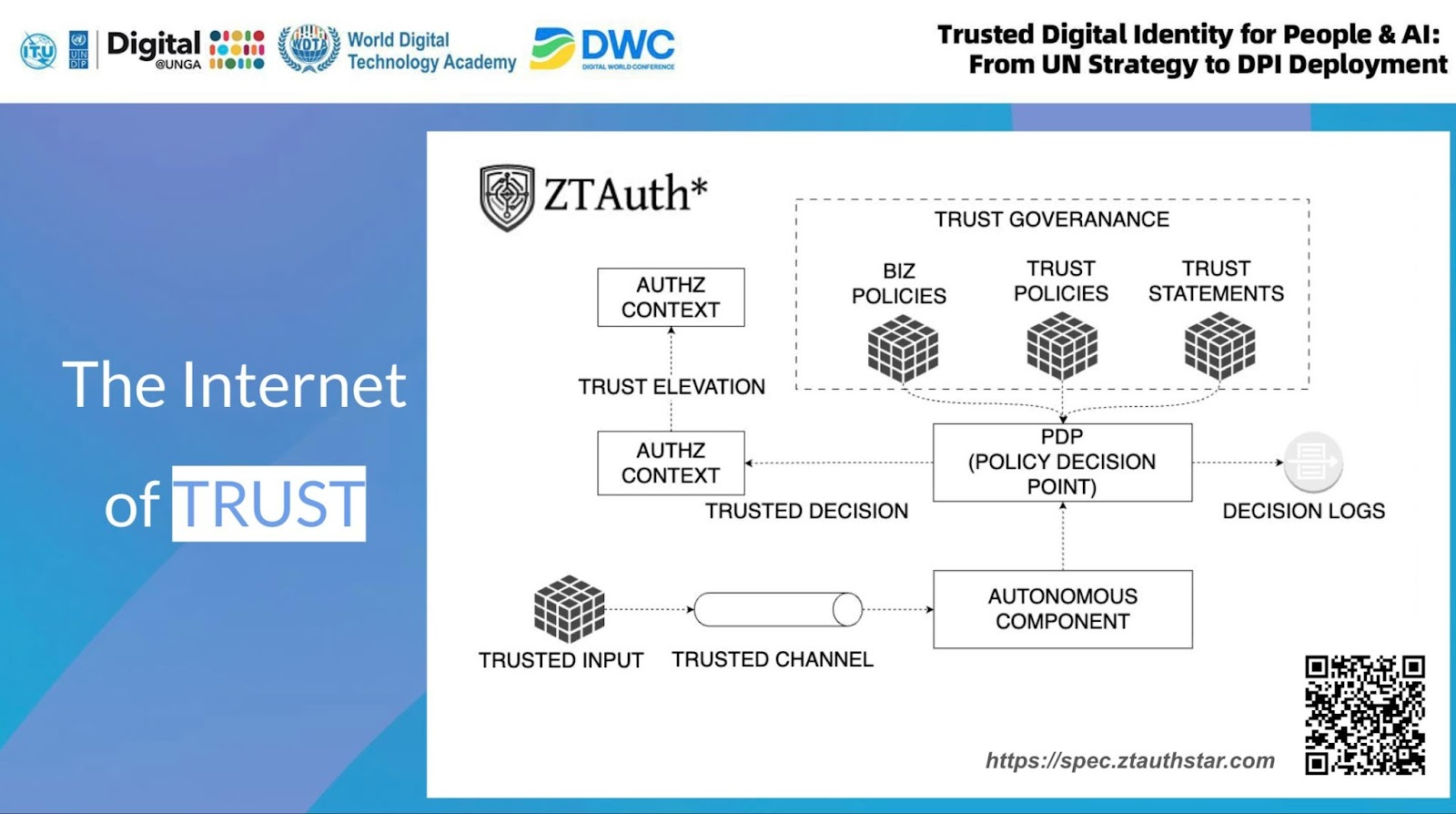
As a next step, the members will publish a 2-page outcomes brief and an implementer checklist for policy makers and practitioners within the next two weeks. Stay tuned for links to these practical documents to be open-sourced by DIF.

